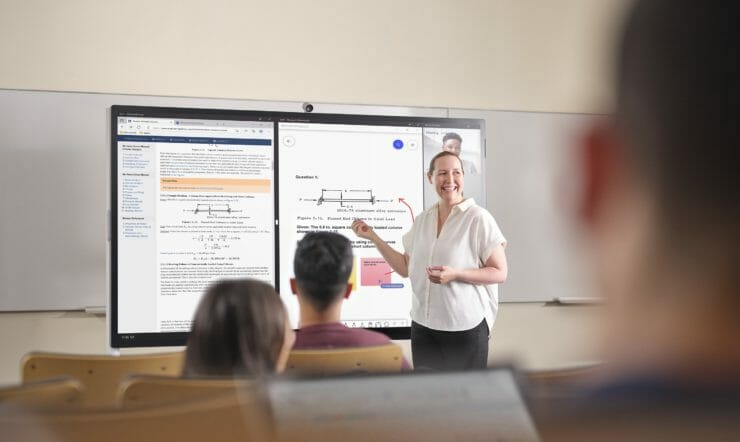While the demand for staff with specific technical and digital skills continues to grow, graduates seem often to lack those skills. The business community is eager to train these future employees to equip them with the skills required to make a seamless entry into the professional world. This active attitude of companies offers hope, but what about the role of education? Are educational institutions still able to provide a new generation with the right skills for a rapidly changing labor market?
Since I wrote in September about the importance of transferable skills and digital skills in closing the gap between supply and demand in the labor market, and the decreasing importance of only the “traditional” degrees, I received concerned questions from people around me. It’s great that companies are taking the lead in teaching in-demand skills. But in this world, are diplomas really relics of the past? Is the role of our traditional education system obsolete? The answer to both questions is a resounding “no”. On the contrary: while we now see various parties stepping up to address the mismatch between supply and demand in the labor market, we must not forget that the task of training future workers lies primarily with educational institutions.
Rebooting educational programs
The question is, however, how educational institutions can best fulfill that role. A recent white paper by market research agency International Data Corporation (IDC) confirms that the demand for IT talent continues to grow, and that it’s up to educational institutions to develop a curriculum that teaches pupils and students the required skills in addition to the usual curriculum. These institutions are struggling with this, particularly because of the mind-boggling speed at which developments in society, technology, the job market and education itself succeed each other. As a result, a curriculum quickly becomes outdated and is, by definition, not easily adaptable.
Essential learning experiences for successful careers
On a positive note, the IDS report provides concrete suggestions for adapting curricula based on learning experiences and skills that employers label as essential for an employee’s success. The survey results show, among other things, that 85% of employers indicated that they see role-specific technical skills as the most important success factor. Of those role-specific technical skills, 68% of managers consider core product experience to be most valuable, followed by core product certification at 63%. In addition, employers find specific cloud skills very important prerequisites for a successful career start. In summary, employers find hands-on experience and specific technical certification important to be successful in any field of work.
Learning to become a lifelong learner
But it would be a mistake to look at education only through the lens of curriculum adaptation. Educational institutions have been undergoing interesting developments in recent years that help them fulfill their essential role in the labor market. First of all in the area of applying technology in the curriculum. As a result of COVID, schools in elementary, secondary, vocational, and university education have all had to make huge strides in a short period of time to transition to digital education. As a result, both boards and teachers have had a massive amount of hands-on experience with technology that makes them more open to technological developments and their application in their organizations.
In addition, we see that institutions in vocational education and universities, through more intensive cooperation with businesses, are gaining more knowledge of the changing demands that employers have when it comes to employees. They are responding not only by adapting curricula, but also by taking on a coaching role – by actively referring students to providers of relevant training courses and institutes where specific certificates can be obtained, they are teaching students how to develop themselves throughout their lifetime.
Businesses are the perfect partner for education
Educational institutions and companies both have specific characteristics, roles and capabilities that must complement each other in the right way to restore the balance in the labor market. That collaboration is slowly but surely beginning to take shape. For example, Microsoft commissioned the IDC report to give educational institutions concrete insights into what employers need. Curriculum developers can use this insight immediately by integrating specific (product) training and certification into their curricula. In addition, we have entered into a Shared Goals Agreement with three English and now two Dutch universities, whereby students at those universities receive courses in cloud computing, AI and data science, among others, and have access to LinkedIn Learning, AI Business School, technology classes, GitHub and industry certifications. In a similar, pan-European program, we offer free cloud training courses that train students for the so-called Microsoft Fundamental certifications.
To return to my initial question about the role of the education sector in narrowing the skills gap, I’d like to refer again to the IDC report, in which the researchers emphasize that the classroom remains the heart of the educational experience. Education is the foundation upon which specific skills and experiences can be built and which helps students adapt to new technologies more quickly and deftly. On that foundation, companies can partner with educational institutions to build something great for the future. Microsoft sees it as a privilege to help, but much more is needed. I therefore invite other companies to join this essential societal movement.

















